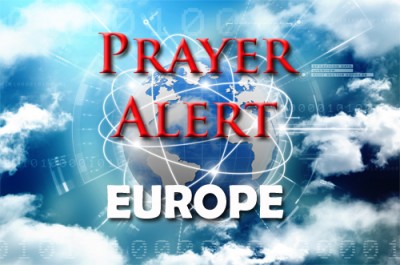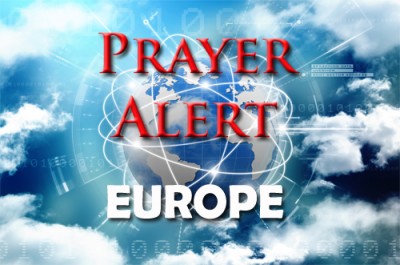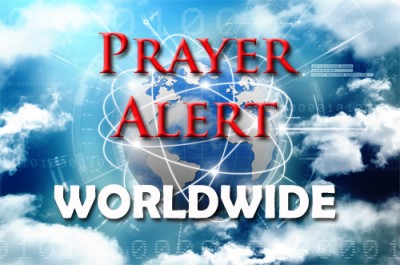Commonwealth 1: uncertainty over leadership
14 Feb 2020The Commonwealth faces uncertainty over its leadership after its heads of government rejected the secretary-general, Baroness Scotland, being given an automatic second term. Her four-year term of office comes to an end next month. The Commonwealth comprises 53 countries, encompassing almost 1/3 of the world’s population. There is disquiet among some member states about how its secretariat has been run. New Zealand has recently stopped giving funds to the institution. As long ago as 2017 the Government drafted in senior officials to support it amid concerns over the way it was being run. Senior diplomatic and political sources are accusing Lady Scotland of poor leadership and underperforming. Also, internal auditors found she awarded a lucrative £250,000 consultancy contract to a company run by her friend Lord Patel, ‘circumventing’ usual competitive tendering rules. The committee report found his firm was insolvent, with debts worth over £40,000. See
Commonwealth 2: prayer for a new era
14 Feb 2020Let us pray that, as the Commonwealth members enter a new season of advancement, the ‘wealth of these nations’ will be revealed and released in God’s own timing. May He reveal His Isaiah 60 glory in the Commonwealth, and draw on all righteous heritage in the spiritual, governmental, and economic dimensions. May new trade partnerships as well as new quangos be formed to expedite heaven’s plan, and new interdisciplinary committees formed to develop areas of growth, with national governments working together. May this be a new day for the nations of the Commonwealth as a group and as individual nations: not empire-building as in the past, but growing healthy, interdependent partnerships which benefit each member nation. For the full text of Passion for the Nation’s declaration for the Commonwealth, click the ‘More’ button.
Storm Dennis to follow Ciara
14 Feb 2020A new storm is expected to bring heavy rain and strong winds to parts of the UK this weekend. Heavy rainfall on ground already saturated by last weekend's Storm Ciara could lead to further flooding. Storm Dennis, with wind gusts of over 60mph, is likely to cause disruption. On 11 February the Met Office gave advance storm warnings to give people time to prepare for potential storm impacts. A twelve-hour weather warning will come into force at midday on 15 February. The Met Office said that disruption to transport services and power supplies should be expected, and that Storm Dennis could cause more large coastal waves.
Millions at risk of UC ‘lockout’
14 Feb 2020New research by the Salvation Army shows that millions of people risk being unable to access their sickness benefits due to faults in the Universal Credit system. Researchers found that 85% of people surveyed struggled to complete their claim. Of these, nearly 60% cited not being able to use a computer or not understanding the complicated system as the main problems they faced. Thousands of vulnerable people on low incomes - particularly those with mental illness - are at risk of destitution because they do not have the skills or support to apply for and maintain a UC benefit claim. There is ‘overwhelming evidence’ that many people find it a struggle to engage with the mainly digital benefit, leaving them unable to pay rent or buy food and effectively locking them out of employment support.
Ofcom to have more powers over social media
14 Feb 2020Until now, firms like Facebook, Tiktok, YouTube, Snapchat, and Twitter have largely been self-regulating. New powers will be given to Ofcom to force such firms to take action over harmful content. Companies have defended their own rules about taking down unacceptable content, but critics say independent rules are needed to keep people safe. It is unclear what penalties Ofcom will be able to enforce to target violence, cyber-bullying and child abuse as they make tech firms responsible for protecting people from such content. Pray for wise action to ensure that content is removed quickly. Also, there is growing evidence that Internet use can harm mental health, but research is still lacking. In January leading UK psychiatrists said that tech companies must be made to share data and pay tax to fund research into the risks and benefits of social media use on children’s mental health. See
Ireland: new government needed
14 Feb 2020Ireland needs to form a new government after election results showed Fianna Fáil winning 38 seats, Sinn Féin 37, and Fine Gael 35. The numbers indicate that negotiations to establish a government could be prolonged. The prospect of the left-wing, nationalist Sinn Fein entering Ireland’s government looks likely. This could make some people uncomfortable when they recall all the ‘Troubles’ of the past. In a world of fragmenting politics with Ireland’s Fine Gael and Fianna Fáil, onlookers say it was only a matter of time before Sinn Fein found a route to power. Before the election, both the other parties had ruled out forging a coalition with Sinn Fein, citing its tax policies and IRA past as deterrents. Sinn Fein leader Mary Lou McDonald has said she would ask the EU to support Irish reunification if she was part of the next government.
Spain: ‘We have nothing to keep the sea out’
14 Feb 2020After Storm Gloria devastated one of the Mediterranean’s largest wetlands in January, an urgent search began for solutions to protect it from further floods and creeping water levels. The low-lying Ebro delta suffered most, with waves inundating rice fields and irrigation channels with saltwater as far as two miles inland. Industry has reduced essential sediment from reaching the delta. The sediment is essential for local ecology and protecting shorelines from erosion. Some shorelines are receding over five metres annually. Gloria badly damaged mussel and oyster farms, which sustained losses of £1.3 million. ‘No one has ever seen a storm like this here’, said one farmer. Houses were flooded. ‘Imagine the impact of nine-metre waves and 100km per hour winds hitting a region at sea level,’ said the president of the Ebro delta. For decades the delta’s fragile ecology has suffered from political neglect and over-exploitation of the river.
Syria: violence driving 700,000 away
14 Feb 2020Syrian forces backed by Russian fighter jets recaptured key government positions as Turkey warned of swift revenge if more of its troops are attacked. Syria's army is trying to capture all of the country's last rebel-held territory. Consequently, more people have fled from fighting in Syria over the past 10 weeks than at any other time in the nine-year-old conflict. Pray for all the internally displaced Syrians from western Aleppo’s countryside, fleeing with the only belongings that they can carry, uncertain if they will ever return to normal life. Pray for those who have sheltered in the city of Idlib. On 11 February two UN agencies said it could become a graveyard if hostilities continue. Currently Syrian government forces are shelling their way northwards. Turkey, which backs the rebels and is fearful of additional refugees, has retaliated militarily. Displaced civilians are caught in between. 700,000 people have fled since December, mostly women and children.







